Discover the agricultural paradise and pristine beaches of this unique Maldivian island
Located in Alifu Alifu Atoll, Thoddoo Island stands out as one of the most unique islands in the Maldives. Unlike most Maldivian islands that rely primarily on fishing and tourism, Thoddoo is renowned for its thriving agricultural industry, particularly its famous watermelon and papaya plantations that supply fresh produce to resorts and local islands throughout the country.
What makes Thoddoo truly special is its perfect blend of agricultural heritage and natural beauty. The island boasts some of the most stunning beaches in the Maldives, with powdery white sand and crystal-clear turquoise waters that rival those of luxury resorts. Its unique position as a separate island outside the main atoll ring provides it with exceptional beaches on all sides.
With a growing but still authentic tourism infrastructure, Thoddoo offers visitors a rare opportunity to experience both traditional Maldivian island life and agricultural practices while enjoying beautiful beaches and water activities at budget-friendly prices. Whether you're interested in exploring fruit farms, relaxing on pristine beaches, or experiencing local culture, Thoddoo Island provides a distinctive Maldivian experience unlike any other.
Thoddoo Island occupies a unique geographical position in Alifu Alifu Atoll, situated approximately 67 kilometers west of Male. Unlike most islands in the Maldives that are part of a continuous atoll ring, Thoddoo stands alone as a separate island outside the main atoll structure, surrounded by its own reef system.
This distinctive location provides Thoddoo with exceptional beaches on all sides and protection from strong ocean currents, creating ideal conditions for both agriculture and tourism. The island's isolation has also contributed to its self-sufficiency and unique cultural development.
Thoddoo Island is famous throughout the Maldives for its agricultural prowess, particularly its fruit production. The island's unique soil composition, adequate groundwater, and traditional farming techniques have made it the fruit basket of the Maldives, supplying fresh produce to resorts and local islands across the country.
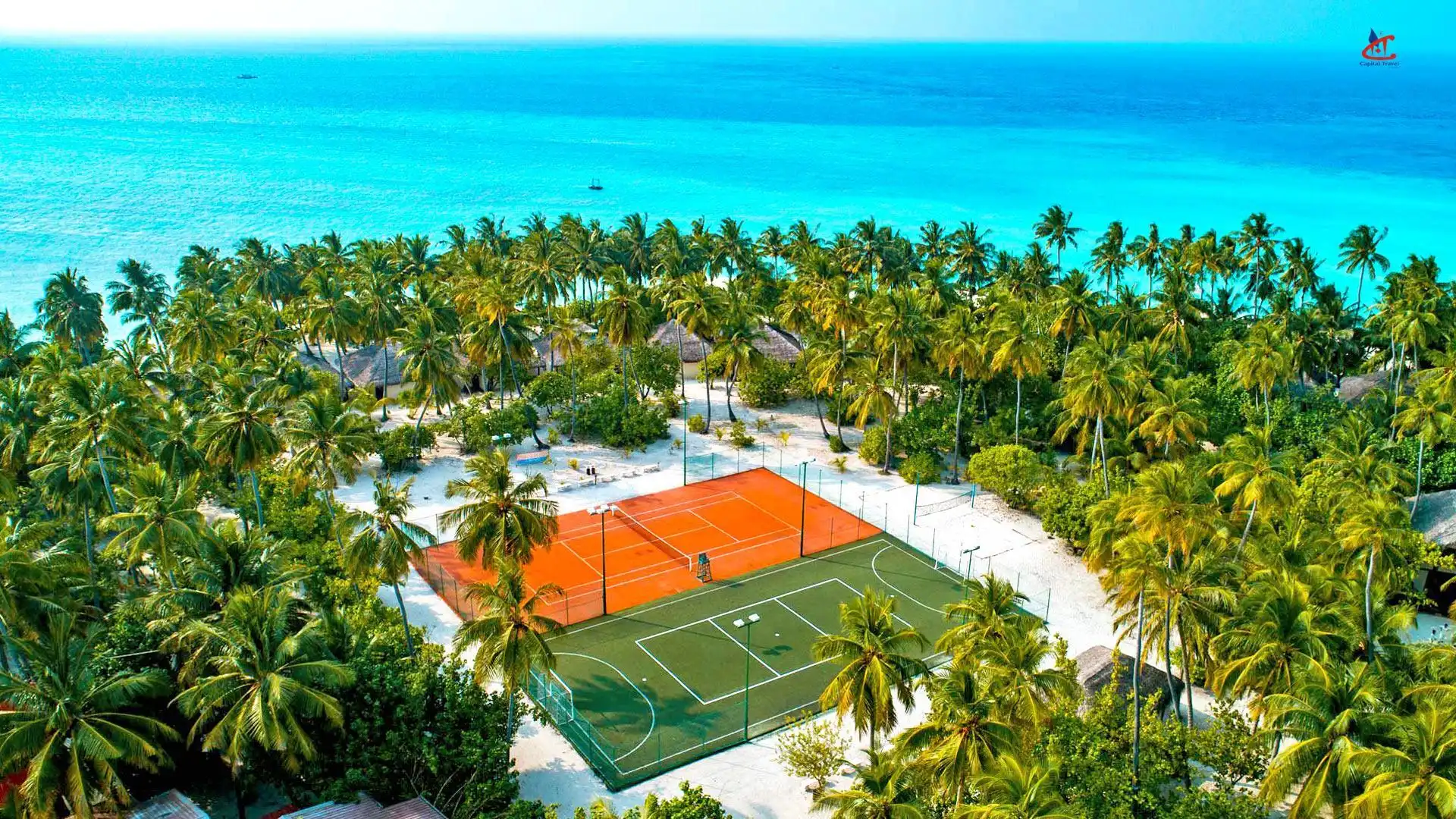
Thoddoo's most famous crop, these sweet and juicy watermelons are renowned throughout the Maldives. The island produces watermelons year-round but is especially productive during the northeast monsoon season.

The island produces some of the sweetest papayas in the Maldives, with trees bearing fruit throughout the year. Both green and ripe papayas are harvested for different culinary uses.
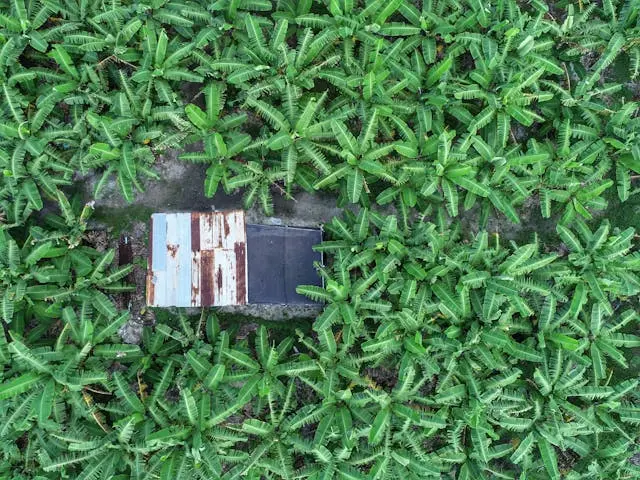
Several varieties of bananas are grown on Thoddoo, including the small sweet varieties popular for desserts and the larger cooking bananas used in traditional Maldivian cuisine.
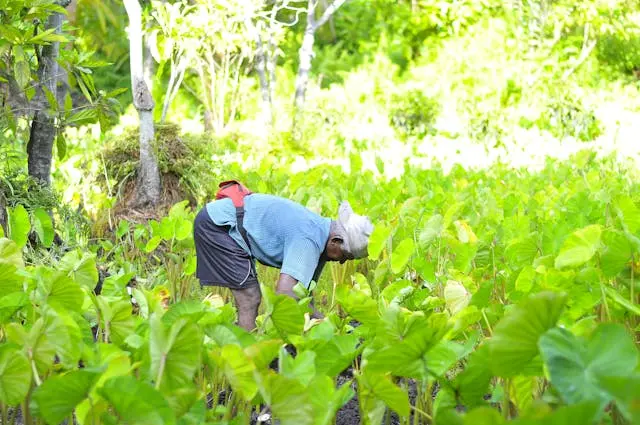
The island also produces various vegetables including eggplants, chilies, pumpkins, and leafy greens, using innovative techniques to overcome the challenges of growing vegetables in sandy soil.
Visitors to Thoddoo can experience the island's agricultural heritage through guided farm tours:
Most guesthouses can arrange farm tours, which typically cost around $15-25 per person depending on the duration and inclusions.
These sustainable practices have allowed Thoddoo to maintain its agricultural productivity while preserving its natural environment.
Thoddoo offers a growing range of accommodation options that cater to different budgets and preferences. From simple guesthouses to more upscale boutique hotels, visitors can find comfortable places to stay while experiencing the island's unique agricultural heritage and beautiful beaches.

Several family-run guesthouses offer clean, comfortable rooms with essential amenities including air conditioning, hot water, and Wi-Fi. Most guesthouses provide full-board packages that include three meals daily and can arrange excursions and activities.
Price Range: $35-65 per night
Popular Options: Thoddoo Beach Holiday, Serene Sky, Island Cottage

A few mid-range properties offer enhanced amenities, stylish décor, and premium services. These establishments typically feature larger rooms, quality dining options, and more personalized service.
Price Range: $70-120 per night
Features: Premium furnishings, on-site restaurants, garden or sea views, tour services

Some accommodations offer beachfront rooms with direct access to the white sand beaches. These properties typically feature private terraces or balconies with sea views and are ideal for couples seeking a romantic yet affordable getaway.
Price Range: $60-100 per night
Features: Beachfront location, sea views, private outdoor spaces
Despite its focus on agriculture, Thoddoo has developed good infrastructure to support both its local population and growing tourism industry. The island offers various facilities to ensure a comfortable stay for visitors while maintaining its authentic character.
Several convenience stores and mini-markets sell groceries, snacks, beverages, toiletries, and souvenirs. The island has 4-5 general stores located throughout the village. Fresh fruits are available directly from farmers or at small fruit stands.
3-4 small restaurants and cafés serve local Maldivian cuisine, seafood, and some international dishes. Most guesthouses have their own restaurants for guests, often featuring fresh produce from the island's farms.
A health center with basic medical facilities and a resident nurse provides primary care. For serious conditions, evacuation to Male is arranged. A small pharmacy stocks essential medications.
Thoddoo has an ATM that accepts international cards. Currency exchange services are available at some guesthouses. Most establishments accept credit cards, though some may charge a small fee.
Most guesthouses and cafés offer free Wi-Fi. Mobile coverage is good with both Dhiraagu and Ooredoo networks. SIM cards can be purchased at the airport or local shops.
24-hour electricity is available throughout the island. Power outlets are UK-style three-pin plugs. The island has a reliable power generation system with backup generators.
The island has a primary and secondary school. Higher education requires travel to Male or other islands. Some schools incorporate agricultural education into their curriculum.
The island has a main mosque at its center and smaller prayer facilities. Visitors are welcome to view the exterior but should dress modestly and respect prayer times.
The island has a football field, volleyball court, and basketball court where locals play in the evenings and visitors are welcome to join. Some guesthouses offer equipment rental for beach sports.
A well-maintained harbor and jetty facilitate arrivals and departures. The harbor area is also where fishing boats dock and where many water activities begin. A separate cargo jetty handles agricultural exports.
The island has a good groundwater supply and rainwater harvesting systems. Most guesthouses provide filtered drinking water. Bottled water is widely available in local shops.
Thoddoo has implemented waste management systems with recycling initiatives. Organic waste is often composted for use in agricultural areas, contributing to the island's sustainability efforts.
Despite its agricultural focus, Thoddoo Island boasts some of the most beautiful beaches in the Maldives. The island's unique position as a separate entity outside the main atoll ring provides it with exceptional beaches on all sides, each with its own character and charm.
Thoddoo's designated "bikini beach" is located on the northern side of the island, about a 15-minute walk from the center. This stunning stretch of white sand allows tourists to wear Western-style swimwear. The beach features crystal-clear turquoise waters, gentle waves, and natural shade from palm trees. It's well-maintained and has become increasingly popular with visitors seeking beautiful beaches without resort prices.
The island is surrounded by beautiful beaches, though visitors should note that modest dress is required on public beaches outside the designated bikini beach area. The western beach offers spectacular sunset views, while the eastern beaches catch the morning sun and are perfect for early risers.
Thoddoo's house reef is accessible from several points around the island and hosts a diverse array of marine life. The best snorkeling spots are near the bikini beach and on the eastern side of the island where the reef is particularly vibrant and healthy. Snorkelers can spot colorful reef fish, rays, reef sharks, and occasionally turtles just a short swim from shore.


Thoddoo Island represents a unique environmental balance between agriculture and natural ecosystems:
This balance between development and conservation makes Thoddoo a model for sustainable island living in the Maldives.
Thoddoo offers a unique mix of agricultural, beach, and water activities that set it apart from other Maldivian islands. Visitors can enjoy both traditional tourist activities and experiences that showcase the island's agricultural heritage.
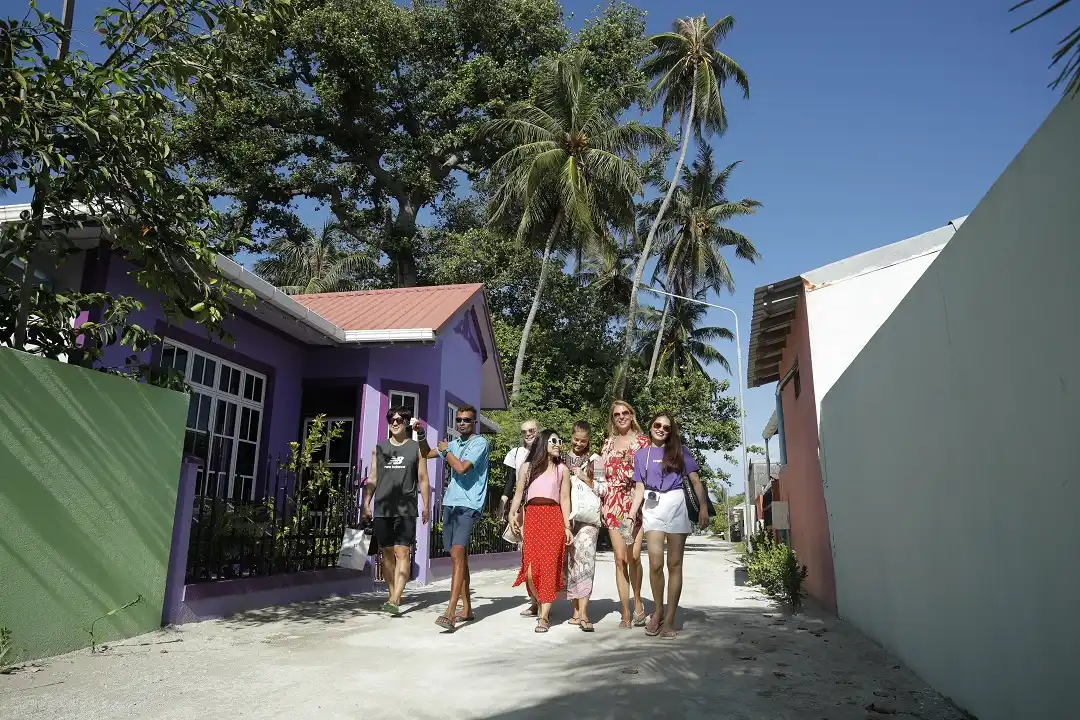

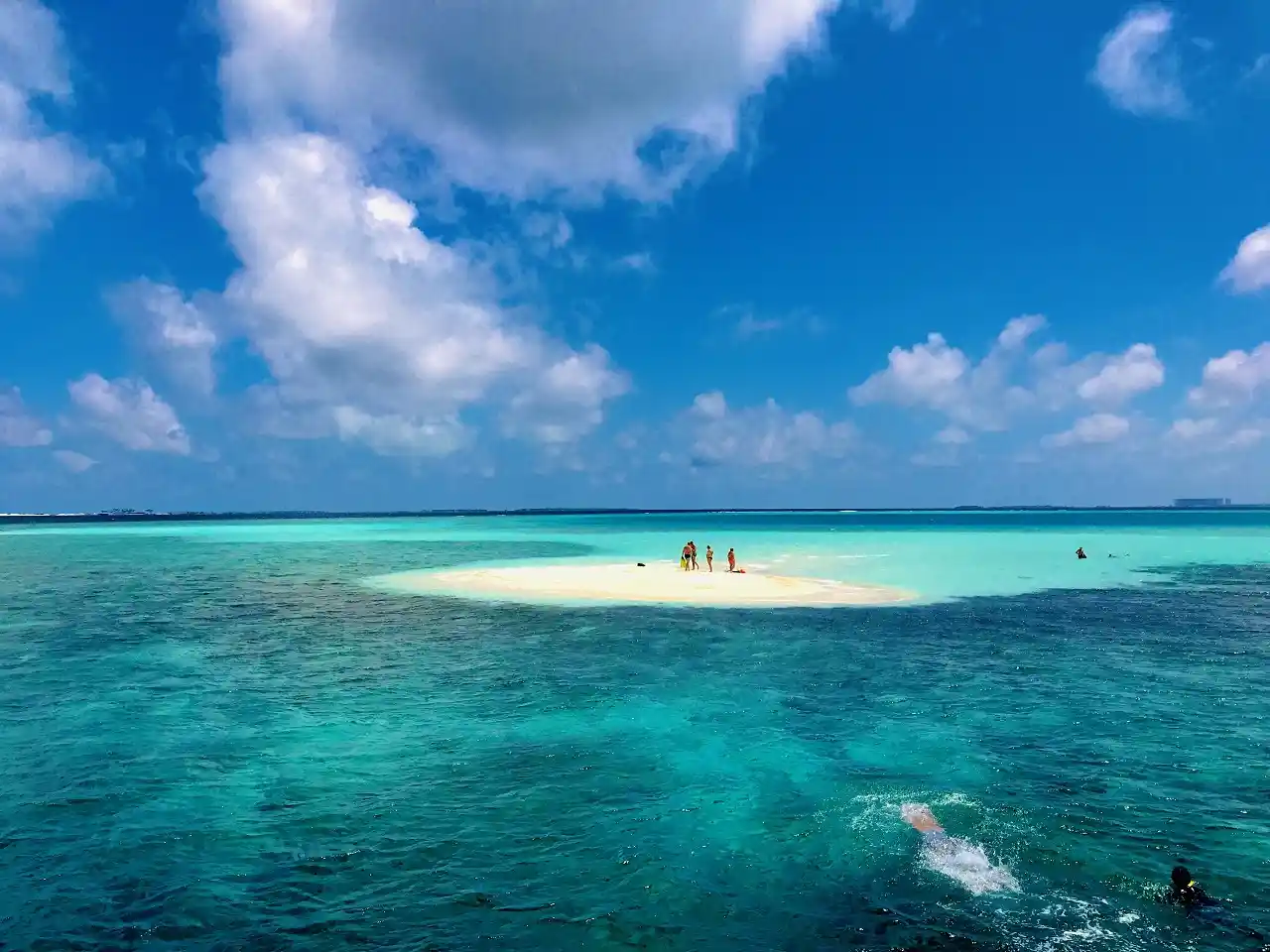

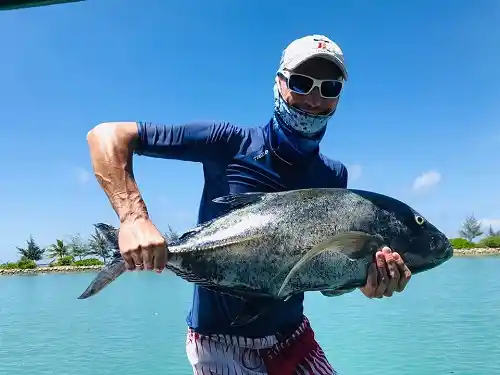


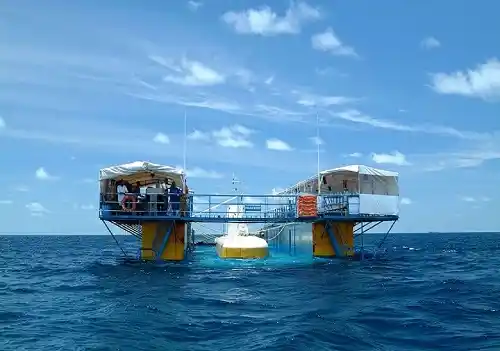
The heart of Thoddoo's charm lies in its warm, welcoming community of approximately 1,800 residents. The island's population maintains traditional Maldivian customs while embracing their unique agricultural heritage that sets them apart from other Maldivian communities.
Life on Thoddoo revolves around agriculture and fishing, with a growing tourism sector. Many residents work in farming, tending to the island's famous fruit plantations, while others are involved in fishing, boat building, or tourism-related services. The daily rhythm is influenced by both agricultural seasons and the five daily prayer times observed in this Muslim community. During harvest seasons, much of the community participates in gathering and preparing fruits for export to other islands and resorts.
Thoddoo preserves many traditional Maldivian customs while developing its own unique cultural practices related to agriculture. The island celebrates traditional festivals and religious holidays with community gatherings, often incorporating agricultural themes into these celebrations. Harvest festivals are particularly important, marking the peak seasons for different fruits. Boduberu performances – traditional drumming and dancing – are regularly organized, especially during special occasions and for visitors.
What makes Thoddoo's community special is its strong agricultural identity. Knowledge of farming techniques is passed down through generations, with families often specializing in particular crops or farming methods. The community has developed cooperative systems for water management, crop rotation, and marketing their produce. This agricultural focus has fostered a strong sense of environmental stewardship and sustainability among residents.
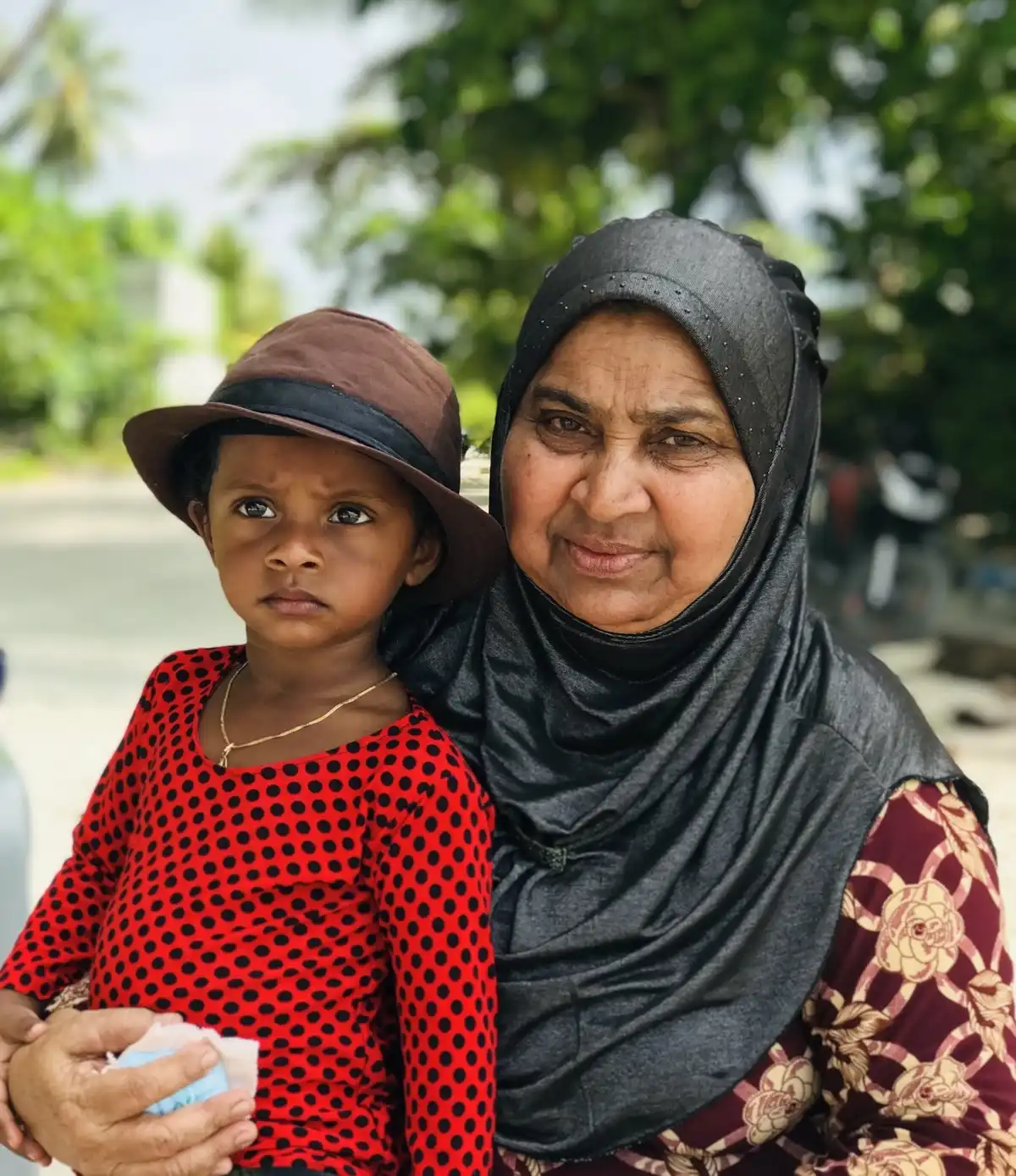

Hear what previous visitors have to say about their stay on Thoddoo Island:
Thoddoo was the highlight of our Maldives trip! We were looking for something different from the typical resort experience, and this island delivered. The beaches are absolutely stunning - just as beautiful as any resort but without the crowds or high prices. What made it special was the unique opportunity to visit the fruit farms. Our guesthouse arranged a tour with a local farmer who showed us how they grow those famous watermelons and let us taste fruits straight from the trees. The bikini beach was perfect - clean white sand and crystal clear water. The locals were incredibly friendly and welcoming. If you want to experience the real Maldives while still enjoying beautiful beaches, Thoddoo is perfect.
As a solo traveler interested in sustainable tourism, Thoddoo was exactly what I was looking for. The island offers a fascinating glimpse into how agriculture and tourism can coexist sustainably. I stayed at a small guesthouse where the owners treated me like family and served amazing meals with ingredients from their own garden. The bicycle tour around the island's farms was eye-opening - I never expected to see such extensive agriculture in the Maldives! The beaches rival any postcard image you've seen, but what makes Thoddoo special is the authentic community experience. I loved chatting with the farmers and learning about their techniques. Plus, the snorkeling right off the beach was incredible - I saw rays, reef sharks, and countless colorful fish without needing a boat trip.
Discover pristine beaches, explore unique fruit farms, and immerse yourself in authentic Maldivian culture on Thoddoo Island. Book your stay today for an unforgettable island experience.
Plan Your TripYou can reach Thoddoo Island from Male by public ferry or speedboat. The public ferry operates three times a week (Sunday, Tuesday, and Thursday), departing from Male at 9:00 AM and arriving at Thoddoo around 1:00 PM. The journey takes approximately 4 hours and costs about $4-6 per person. Speedboat transfers are faster (about 1.5-2 hours) but more expensive (around $40-50 per person) and can be arranged through your guesthouse or a travel agency. Some guesthouses also offer private transfers for a higher fee. It's recommended to book your transfers in advance, especially during high season.
The best time to visit Thoddoo Island depends on your priorities. The northeast monsoon (December-April) generally provides the best overall weather conditions with less rainfall, lower humidity, and calmer seas, making it ideal for beach activities and water sports. This is also when the island's watermelon production is at its peak. The southwest monsoon (May-November) may have occasional rain showers but still offers many sunny days, fewer tourists, and lower prices. For agricultural enthusiasts, different fruits are in season throughout the year, so there's always something interesting to see in the farms. Water temperature remains warm (27-30°C/80-86°F) year-round.
Thoddoo stands out from other local islands in the Maldives primarily because of its agricultural focus. While most Maldivian islands rely on fishing and tourism, Thoddoo is famous for its fruit production, particularly watermelons, papayas, and bananas. The island's unique position as a separate island outside the main atoll ring gives it exceptional beaches on all sides. Thoddoo also has a distinctive cultural identity centered around agriculture, with farming traditions passed down through generations. Visitors to Thoddoo can enjoy both the typical Maldivian attractions (beautiful beaches, snorkeling, water activities) and unique agricultural experiences like farm tours and fruit tastings that aren't available on other islands.
Yes, as Thoddoo is a local inhabited island with a Muslim population, visitors are expected to dress modestly in public areas. Both men and women should cover shoulders and knees when walking around the village, visiting shops, or dining in local restaurants. Swimwear (including bikinis) is only permitted at the designated "bikini beach" area on the northern side of the island. When visiting the mosque or religious sites, women should cover their heads with a scarf. These dress code requirements are a sign of respect for local culture and traditions and are generally well-enforced on the island.
Yes, one of the highlights of visiting Thoddoo is the opportunity to purchase and taste fresh fruits directly from local farms. Many farmers welcome visitors and sell their produce on-site, offering the freshest fruits possible. Some guesthouses can arrange farm visits that include fruit tasting and purchasing opportunities. There are also small fruit stands in the village where farmers sell their daily harvest. The island is particularly famous for its sweet watermelons, papayas, and bananas, but depending on the season, you might find various other tropical fruits as well. Prices are generally very reasonable compared to what you would pay at resorts or in Male.